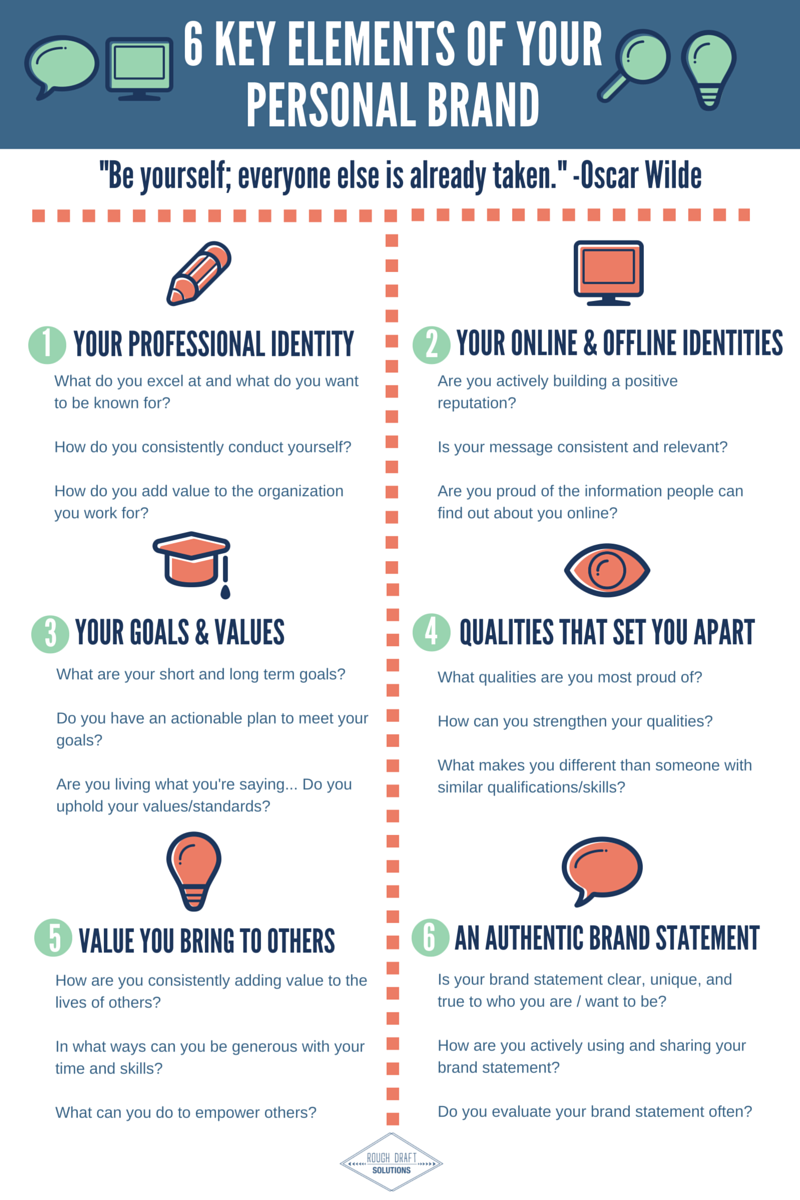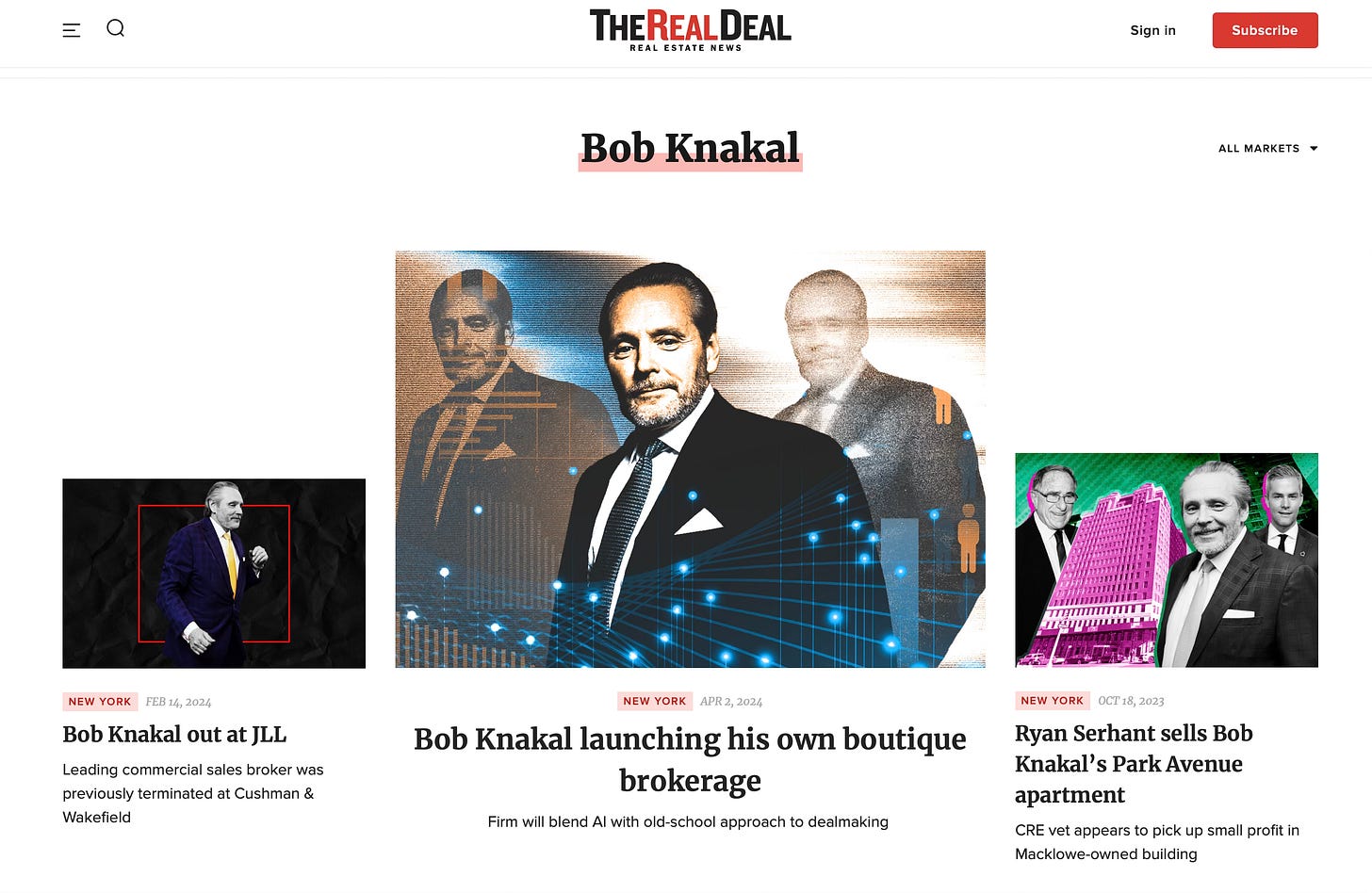Your Job Title Isn’t Your Value—Your Personal Brand Can Be
In today’s uncertain CRE market, your personal brand is more than marketing—it’s an edge. It helps you stand out, communicate your value, and build something portable, scalable, and undeniably yours.
Recent Popular Posts
TL;DR:
The real estate shakeout since 2022 has made one thing clear: your title won’t save you—your personal brand might. If you’re not building visibility, trust, and a network around who you are and what you stand for, you’re falling behind. This post breaks down why that matters now more than ever—and how to start.
Since 2022, the real estate industry has been undergoing a slow-motion shakeout. Deal volume has compressed, capital is tighter, and more professionals—at every level—are finding themselves either cut loose or stuck in neutral. As we hit mid-2025, it’s clearer than ever: if you’re a company man/woman who relies solely on your firm, your title, or your employer to define your value, you’re at risk.
That’s why I’m resurfacing this piece. When I first wrote it, I was still wrapping my head around the idea of a “personal brand platform.” Like a lot of developers, I thought it sounded like marketing fluff. But what I’ve come to realize—and what this post explores—is that your personal brand is just an amplification of who you are and what you stand for. It is one of the most underleveraged assets you have. Your personal brand can help you stand out, build trust, and connect with people who believe what you believe.
If you're a real estate entrepreneur, investor, or operator looking for your next chapter—or trying to grow despite the headwinds—building your voice and visibility isn’t just smart. It’s essential. This post is about why, and how, to get started.
Cheers, JP

When real estate developers hear the term, “personal brand platform” they think, “That sounds like a load of marketing bull$hit.” At least, that is what I thought when I first heard the term.
As I got to know what personal brands entail I realized they provide a ton of value. Building a personal brand platform involves regularly connecting with your friends and colleagues. Ultimately it is building an audience of like-minded individuals, your “tribe”.
A tribe matters because together, we all go farther. A tribe is another word for a community. A community is a collection of like-minded people who share common values and beliefs and will put their joint efforts toward a common goal. Melissa Galt
As a Millennial friend and successful restauranteur recently told me, “Connecting with your audience in an authentic way, sharing stories and lessons learned, creates a bond with people. It also allows them to recognize you’re not a corporate drone.”
I’m not a corporate drone, I promise.

I’ve also never had an interest in “building an audience” because it sounded like cheesy marketing speak. But…
Why Personal Brands Matter to Me and Why It Should Matter to You
You recognize the value of keeping in touch with people. Part of that includes sharing your experiences and telling stories.
Personally I enjoy sharing stories about how I did it with up-and-coming developers and entrepreneurs.
Through posting on social media and through this newsletter I do that.
Ultimately, building a personal brand platform is “personal” for me. Because I see it as a way to authentically connect with a “tribe” of like-minded real estate investors and entrepreneurs.
An important reason for building “my tribe” is it is a way to connect with potential business partners and to attract deal flow. One major benefit of a bigger network is also it provides you with a larger circle of influence.
The larger your circle of influence, the larger your impact on the world and the industry. Let’s go team!
So no matter where you are in your entrepreneurial journey, a personal brand platform should be an extension of who you are. Nothing fake, nothing added.
Personal branding is a means to amplify your message and to extend your reach.
As a developer, maybe you need to raise money for a deal?
As a broker, maybe you need to showcase your local market knowledge to connect with more sellers or buyers?
Whatever your priority is, you have the ability to connect and build relationships through a personal brand platform.
Continued below…
🚨 New Mini-Series Launch: Private Capital Perspectives
We're excited to launch a new mini-series on The LineUp — Private Capital Perspectives — where we sit down with private investors, family offices, and capital allocators to explore where they’re seeing opportunity, what challenges they’re navigating, and most importantly, how they’re overcoming them in today’s uncertain market.
Confirmed guests include:
A family office investor and former investment banker
A partner at a family office that focuses on real estate investment & development
An attorney specializing in structuring real estate joint venture partnerships and complex transactions
These are real conversations with real capital players — no fluff, just practical insights.
Stay tuned for the first episode — and let us know what topics you'd like to see covered. Shoot us a DM or note by responding to this email.
An Example of a Successful Personal Brand Platform
Bob Knakal has built a strong personal brand platform.
Bob is a development land broker in Manhattan who has built his business over the past 35+ years. He’s an expert in identifying underdeveloped properties. Prior to last year (2023), he never had a social media account.
Since then, he has massively grown his business by sharing his deal experience from his many years on LinkedIn and X. Here is what he has to say about building a personal brand platform.
He is such a force in CRE that JLL let him go after a NY Times article on him and his massive personal brand.
The President of JLL’s NY office Peter Riguardi stated, “At JLL the client comes first, JLL comes second and the individuals come third. That’s the true recipe for success.”
Since leaving JLL, Bob has gone on to found his own brokerage firm, BK Real Estate Advisors.
What’s this mean for our industry? Of course the big firms JLL, Newmark, Colliers are not going away. Their employees also can’t take risks by posting about personal experiences, opinions, or by being too authentic. The risk management team is peering over their employees shoulders.
But….what it means is if you are building your business from scratch or expanding a small/medium business, you can use social media to expand your reach in a very big way. What some might call a competitive advantage to being a “small fish”.
Whether you are just starting or have been at it for awhile, keep going. Reflect on what you’ve done so far, make adjustments, and don’t stop.
Even if you’re already a big name like Bob Knakal, social media gives you leverage to expand even more.
Prior to building his personal brand online everyone in Manhattan real estate knew who Bob was. Now, everyone in the U.S. real estate industry knows who he is.
First, the definition of a “Personal Brand”
Personal brands are what ideas you intentionally put out into the world. Do you actively work to create a perception of who you want to be perceived as?
For example, if you constantly post about industrial, big-box real estate…people will think of you as the industrial big-box real estate guy/gal. One example is Sean Ward an industrial broker out of SoCal who posts regularly on LinkedIn. He has intelligently crafted his brand to reflect who he is and what he stands for.
Most people believe your reputation and your personal brand are the same thing. That’s not true.
Your reputation is made up of the opinions and beliefs people form about you based on your collective actions and behaviors.
Your personal brand, on the other hand, is much more intentional. It is how you want people to see you. Whereas reputation is about credibility, your personal brand is about visibility and the values that you outwardly represent.
So how can you make this happen!?

How to create your personal brand
Create a Brand Strategy. Answering these questions can help frame your thinking. 1) What message do you want to convey? 2) Who do you serve? 3) How do you serve your audience? 4) Who are you associated with? Who do you want to be associated with?
Publish Consistently. Post on social media regularly in a manner consistent with your personal brand message. Figure out where your audience is, then speak to them.
Be Authentic. Share your authentic feelings and ideas. Put content out that feels right and aligns with who you are. This is something that you can use to separate yourself from the corporate drone crowd.
Instill Value. What are you providing for your audience that will keep them interested and coming back? It can be entertainment, education, or connections. If you continue to create value for your audience, they will continue to connect with you and follow along with the journey.
Exercise Thought Leadership. Thought leaders are people that have something to say. They have an opinion. You can do it, so take a stance and articulate your thoughts!
Connect with Your Audience. In my mind, this is a big one! You can achieve this by hosting an industry event or bringing friends together to talk about what they are up to. Look for ways to bring interesting people from the industry together. This creates a win-win for everyone through potential investors and deal flow.

CRE Professionals , Implement your brand
Practically speaking, I’ve outlined what I’ve done to build my personal brand:
Regularly post on LinkedIn and X. - I put out some original content and I actively comment on the posts of thought leaders, friends, and colleagues.
Create a newsletter. - “The LineUp”, is where I share my take on the latest events and give outtakes on lessons learned and stories about my business experiences.
Start a Podcast. - My colleagues Rachel Walters and I recently started, “Breaking New Ground”. We look at real estate entrepreneurship, technology, alternative business models, and business building in the industry.
To summarize:
I’m not a marketing expert. What I am is a real estate investor and developer who believes marketing, especially personal brand marketing, is under-utilized in commercial real estate.
We as commercial real estate (CRE) professionals need personal brand platforms to grow and expand our businesses.
Believe it or not, right now real estate entrepreneurs are raising investment dollars, building businesses, and expanding their reach through social media and personal brand platforms. I’ve met a few on my podcast and in the marketplace recently.
Companies are not loyal to their employees. It is you and your tribe…Build your tribe and flourish.
But building a platform is not for everyone. Many will read this post and scoff, “Self-promotion is not for me!”, or “I don’t have time for that!”.
I get it. I said that for many years. Then, I got let go from a development job, and I started building.
I’m happy I did. I want to help you do the same thing.
Reach out to me if you want to discuss. Leave your thoughts in the comments below!
Cheers, John
From the archive, originally posted April 2024.
Thank you for reading The Lineup. Do you have a topic on real estate development, entrepreneurship, urbanism or placemaking topic you'd like to see us cover in an upcoming post? We'd love to hear from you! We are also open to media partnerships and cross-posts. Reach out to us at info@pughmgmt.com. And don't forget to like, share, and subscribe!
If you like The LineUp, let’s connect: Join our chat conversation on Substack here. Plan a media partnership | 🪄Book a one-on-one intro call to learn more about Our Real Estate Consulting here | 📧 Subscribe at thelineupwithjohnpugh.substack.com








Hi John,
Really enjoyed this piece. I’m a fan of The Lineup. I recently launched Build to Thrive, a platform focused on real estate and entrepreneurship. It’s all about actionable models, playbooks, and practical tools for builders and changemakers. Would love to explore ways to collaborate down the line.
This hit me harder than I expected. I used to think of “personal branding” as just a marketing buzzword until it became something real.I’ve always been puzzled by the idea of visibility. It felt performative at first, but I’m starting to realize that when the company name can no longer speak on your behalf, it becomes more like a voice of your own.I’m curious if there was a specific moment that made you start taking it seriously?